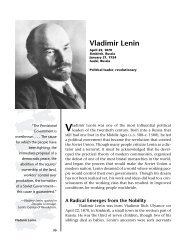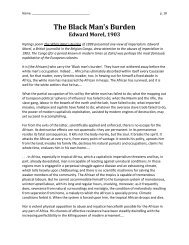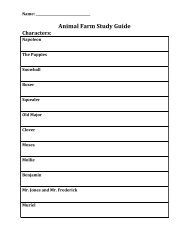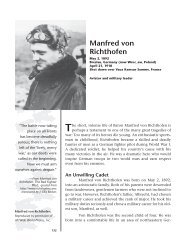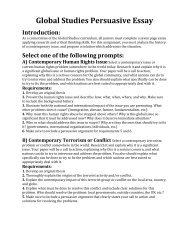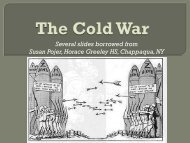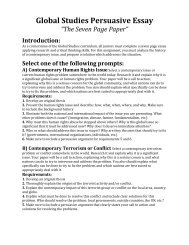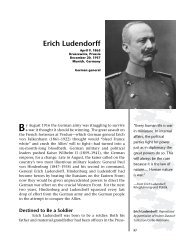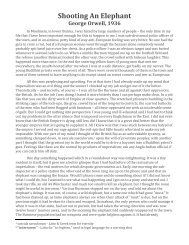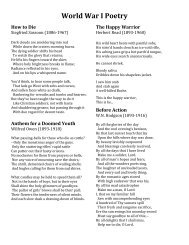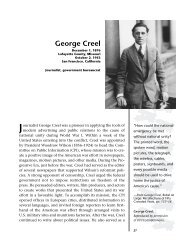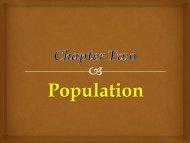Create successful ePaper yourself
Turn your PDF publications into a flip-book with our unique Google optimized e-Paper software.
<strong>Wilfred</strong> <strong>Owen</strong>’s poems<br />
described the deplorable<br />
conditions that soldiers had<br />
to face on the battlefield,<br />
like this American soldier<br />
standing guard during a<br />
German gas attack in<br />
France. Reproduced by<br />
permission of Hulton<br />
Getty/Archive Photos, Inc.<br />
bravery when he helped lead his company to safety during a<br />
battle. On November 4, while leading a group of soldiers across<br />
the Sambre Canal, <strong>Owen</strong> was killed in a hail of machinegun<br />
fire. He died four months short of his twenty-sixth birthday—<br />
and exactly one week before the armistice (peace treaty) of<br />
November 11 brought World War I to an end. . A few months<br />
before his death, <strong>Owen</strong> had written a preface for an edition of<br />
his poetry that he hoped to have published. In 1985, an<br />
excerpt from this preface—”My subject is War, and the pity of<br />
War. The poetry is in the pity. . .”—was carved into a monument<br />
that memorializes sixteen World War I poets in the Poets’<br />
Corner of Westminster Abbey in London.<br />
Siegfried Sassoon knew the quality of <strong>Owen</strong>’s verses<br />
and arranged to have twenty-three of <strong>Owen</strong>’s poems published.<br />
The collection, titled Poems, appeared in 1920; it was<br />
edited by Edith Sitwell, a member of a prominent literary family<br />
in England. Her brother, Osbert Sitwell, had been a friend<br />
of <strong>Owen</strong> and Sassoon. In 1931, an expanded edition with<br />
116 World War I: Biographies



